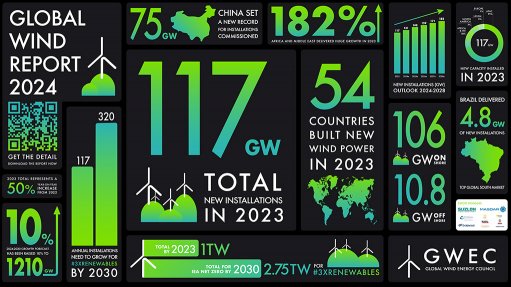Consumers playing role in keeping plastic tubs out of landfills, says Polyco
Research has highlighted that a significant proportion of consumers re-use margarine, large yoghurt and ice cream tubs made from polypropylene (PP), extending their lifespan and keeping these products out of landfill.
Led by nonprofit company the Polyolefin Responsibility Organisation (Polyco), the ‘PP tub re-use research’ aims to guide a higher-level of repurposing for these plastic packaging items by improving their design for re-use and recyclability.
“Polyco understands the value in research-based credible information. We initiated the research with The Moss Group to determine the extent to which margarine, ice cream and large yoghurt tubs are re-used after their original use.
“We wanted to look at this market sector and understand how much of this PP packaging material is placed on the market, how much is recycled, how much is landfilled; then calculate what percentage of these tubs are re-used in households,” says Polyco CEO Mandy Naudé.
To collect this consumer data, 1 550 respondents were engaged telephonically, via online surveys, face-to-face interviews and social media polls to get feedback on what they do with large yoghurt, margarine and ice cream tubs.
“More than 80% of respondents that participated in the research indicated that they repurposed these plastic tubs, most commonly for food storage, food distribution and household storage,” notes Naudé.
At least 103-million large yoghurt tubs, 80-million margarine tubs and 31-million ice cream tubs are produced each year in South Africa, equating to an average of more than 10 000 t of this plastic packaging entering the market.
The high repurposing rate results in lower volumes of PP plastic tubs entering landfill or landing up in the natural environment.
Available beach litter data, collected around the country in 2019 and 2020 and provided by a team led by Professor Peter Ryan at the University of Cape Town and Dr Maelle Connan at Nelson Mandela University, supports this and indicates that these tubs make up around 3% of the 12 378 bottles and tubs catalogued.
“Supporting the efforts of our PP tub research, we will use these results to guide PP packaging producers and their customers to improve the design of tubs for repurposing.
“Design adjustments, such as increasing the strength, improving the lid fit and having removable labels will lead consumers to use these items as storage containers for longer,” states Naudé.
While the re-use rate of these PP tubs is high, the recycling rate of PP plastic products is about 30%. Re-using PP tubs for storage is a temporary solution and eventually these products will need to be disposed of.
PP plastic tubs should be designed for circularity, not to be landfilled, notes Polyco. Designing products for post-consumer recyclability has now been made a requirement by government.
“This consumer insight research has allowed us to understand what drives the re-use behaviour, which will be very important for brand owners, who under extended-producer responsibility (EPR) regulations will be required to manage their products at end-of-life to prevent them going to landfill,” notes Naudé.
New EPR regulations now require producers to take responsibility for their products to ensure consumers can re-use and repurpose products and then recycle them with greater ease.
Driving the market for PP recyclate, designing products for recyclability, creating accessible recycling facilities and increased consumer awareness will increase the recycling rates of these products and lower the volumes of plastic going to landfill, says Polyco.
Comments
Press Office
Announcements
What's On
Subscribe to improve your user experience...
Option 1 (equivalent of R125 a month):
Receive a weekly copy of Creamer Media's Engineering News & Mining Weekly magazine
(print copy for those in South Africa and e-magazine for those outside of South Africa)
Receive daily email newsletters
Access to full search results
Access archive of magazine back copies
Access to Projects in Progress
Access to ONE Research Report of your choice in PDF format
Option 2 (equivalent of R375 a month):
All benefits from Option 1
PLUS
Access to Creamer Media's Research Channel Africa for ALL Research Reports, in PDF format, on various industrial and mining sectors
including Electricity; Water; Energy Transition; Hydrogen; Roads, Rail and Ports; Coal; Gold; Platinum; Battery Metals; etc.
Already a subscriber?
Forgotten your password?
Receive weekly copy of Creamer Media's Engineering News & Mining Weekly magazine (print copy for those in South Africa and e-magazine for those outside of South Africa)
➕
Recieve daily email newsletters
➕
Access to full search results
➕
Access archive of magazine back copies
➕
Access to Projects in Progress
➕
Access to ONE Research Report of your choice in PDF format
RESEARCH CHANNEL AFRICA
R4500 (equivalent of R375 a month)
SUBSCRIBEAll benefits from Option 1
➕
Access to Creamer Media's Research Channel Africa for ALL Research Reports on various industrial and mining sectors, in PDF format, including on:
Electricity
➕
Water
➕
Energy Transition
➕
Hydrogen
➕
Roads, Rail and Ports
➕
Coal
➕
Gold
➕
Platinum
➕
Battery Metals
➕
etc.
Receive all benefits from Option 1 or Option 2 delivered to numerous people at your company
➕
Multiple User names and Passwords for simultaneous log-ins
➕
Intranet integration access to all in your organisation


















